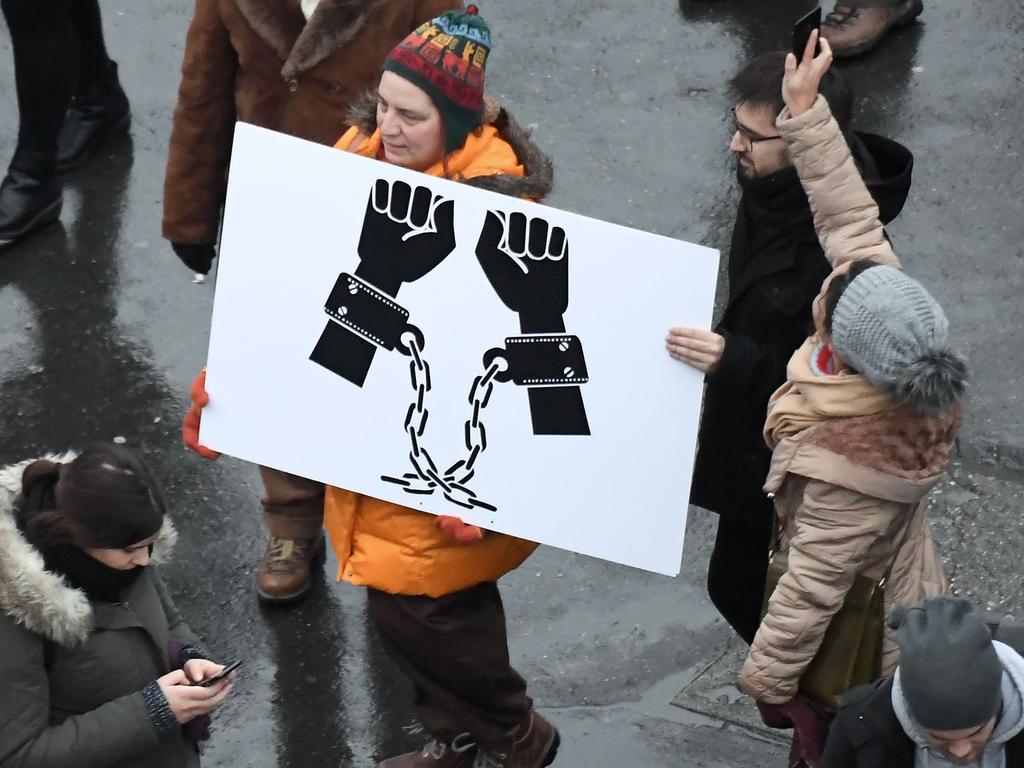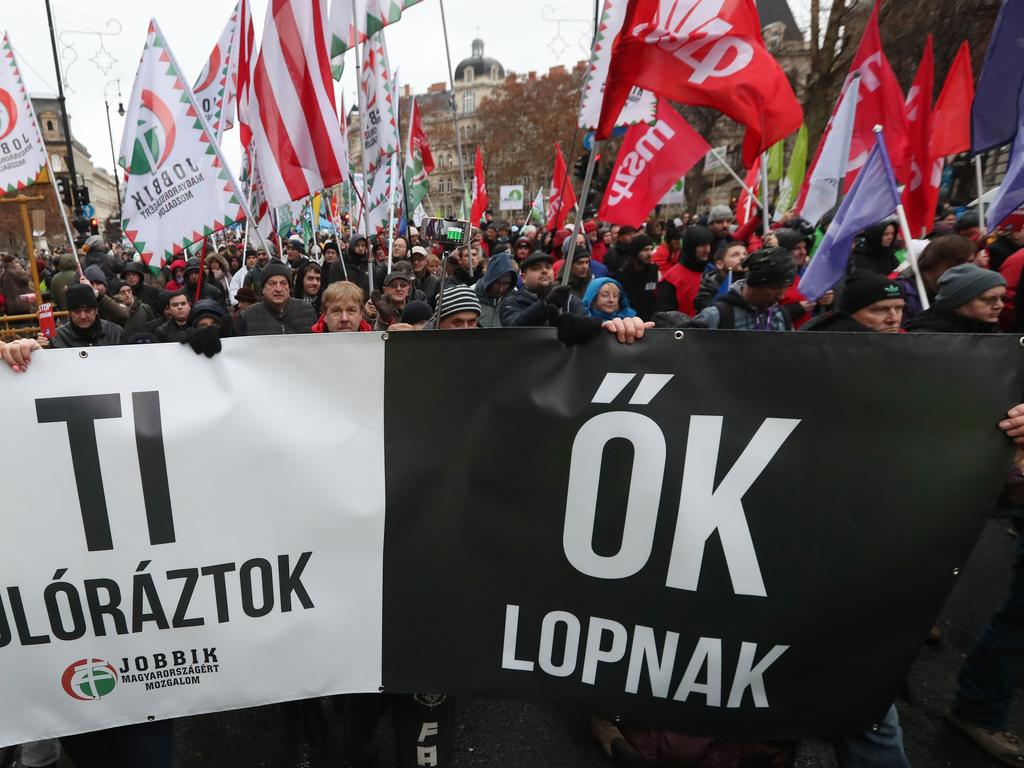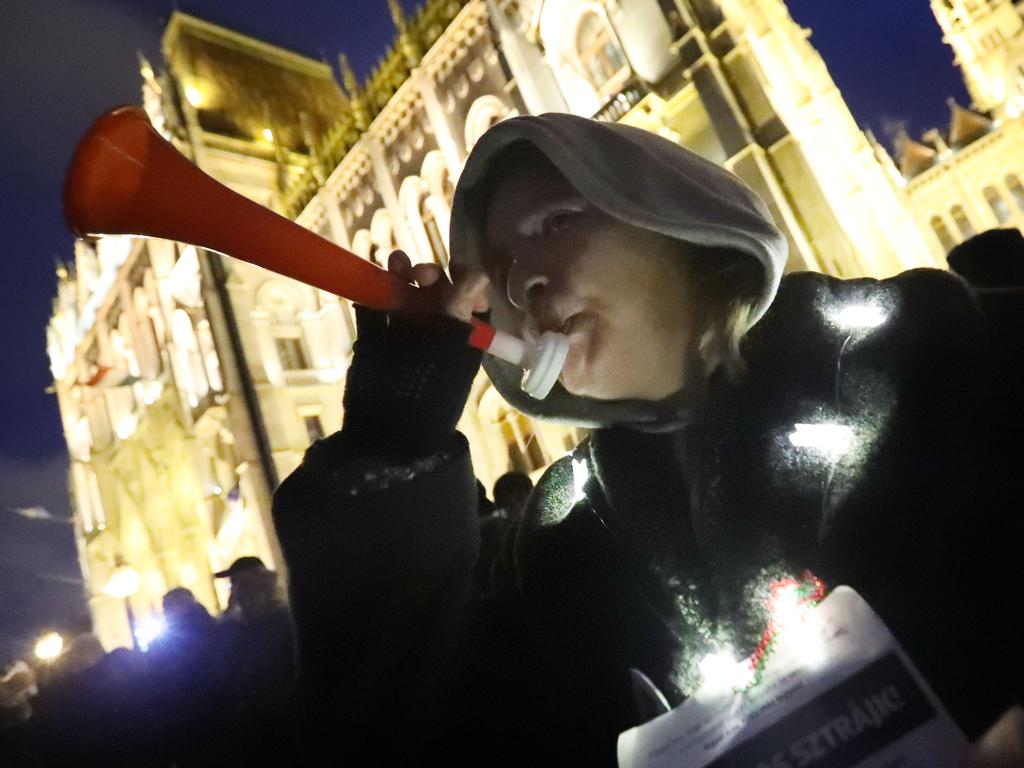Thousands of protesters rally against Hungary’s ‘slave law’
A new law that allows employers to request up to 400 hours of overtime a year from employees has sparked angry protests in Hungary.

Union leaders in Hungary called on Saturday for a national strike and protests on January 19 to oppose labor code changes they see as a “slave law” harmful to workers.
A crowd of at least 10,000 people gathered outside the Hungarian parliament building to protest a law approved in December that allows employers to request up to 400 hours of overtime a year from employees.
Hungarian Trade Union Federation President Laszlo Kordas said the unions are demanding the repeal of the “slave law,” higher wages, increased workers’ rights and a more flexible retirement system.

They plan to present them to Prime Minister Viktor Orban and if the government refuses to negotiate, the unions will hold the strike, he said.
“The government has abandoned us,” Kordas said.
“The country must come to a halt at the same time on the same day.”
Government spokesman Istvan Hollik repeated the claim that Hungarian-American billionaire George Soros is funding protests of the labor law, but did not address the protesters’ specific grievances.

“Hungary is under attack because it stands in the way of the whole pro-immigration politics and, additionally, it has more and more allies in this issue,” Hollik said in a video posted on the government website.
Orban won a third consecutive four-year term in April with a campaign based almost exclusively on his fervent anti-immigration stance.
Politicians from all the major opposition parties, as well as civic groups and students, took part in the rally, which began with a march from Heroes Square to the neo-Gothic parliament. Earlier protests were held in the last two weeks of 2018.

“The world cannot belong to the populists, Hungary cannot belong to Viktor Orban,” independent politician Bernadett Szel said.
Csaba Molnar, of the opposition Democratic Coalition, said that while the protest focused on the labor code revisions, it reflected widespread dissatisfaction with many government policies.
“We are not rising up against one Orban law or another, but against the many, many laws of the repressive regime,” Molnar said.

“We will continue to rise up until we topple Orban’s rotten-to-the-core regime.”
Opposition parties are gathering signatures to pressure Orban to make Hungary part of a new European Union prosecution office targeting corruption.
Hungary is among the handful of EU countries that has opted out of the anti-corruption initiative.

Some Hungarians disapprove of Orban’s campaign against a Budapest university founded by Soros, the creation of a new court system under direct government control and the state media’s transformation into a tool for government propaganda.



